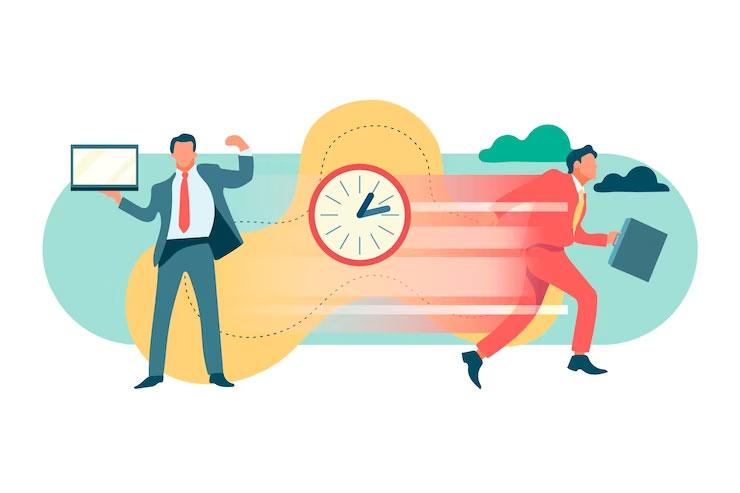Google considers some factors in determining the ranking of a website on the search engine. Recently, it has been observed that the page loading speed of a website also plays an important role in maintaining the ranking of the website, in the search engines.
Previously, the rankings were determined only by Meta tags, Meta titles, content, backlinks, etc., but now a lot of things are considered for a webpage rank. The enterprises or website owners, who are neglecting the page loading speed issue, have witnessed a reduction in the page ranking in the search engines.
Again, Google also mentioned the importance of good page loading speed in its official blog. Thus, if you want to improve your visibility and ranking on search engines, then you have to ensure a good loading speed for the web pages. To understand the importance of page loading speed for SEO, here are some important facts that have been efficiently discussed –
-
Indexation issues –
If the page speed is slow and it takes extra seconds to load, then there are high chance that the crawler might overlook the page. Google has dedicatedly designed its crawlers as per the mindset of the users. It has been observed that the users do not wait for more than 3 seconds for a page to load.
If the crawler finds that your webpage is taking a long time to load, then it will not index your page. And you must know, if a web page is not indexed by the crawler, then there will be no rank for that web page. Hence, to ensure proper indexation of the web pages, it is recommended to avail good page loading speed.
-
Negative Conversion rates –
It has been observed that the users have low patience in browsing the websites. Users do not prefer to wait for the website to load, as they greatly seek instant results. If a website is taking a long time to load, then the users lose their interest in the products and services. This directly affects the conversion rates on the websites, and thus, the page ranking is also affected.
-
High Bounce Rates –
The Websites which take more than 3 seconds to load have high bounce rates as compared to the web pages that load instantly. Well, it is obvious; the users will leave the page if the loading speed is very slow. Instead, the users will prefer a website with a faster page loading speed. Google has designed strict algorithms to catch the bounce rates. If the crawler is detecting high bounce rates on a website, then there is a high chance that the ranking of the website will be greatly affected.
-
Reduced User Experience –
Google always enhances the ranking of its websites with a good and flexible user interface. The main objective of Google is to ensure a comfortable experience for users while browsing the websites. If the users are not happy with the structure and features of a website, then it is greatly going to hamper the visibility of the website. If a website is taking a long time to load, then it is obvious that the User Interface is not maintained properly. Thus, the ranking of the website is greatly affected because of reduced user experience.
Factors that affect the page loading speed of a website
Well, these are the common SEO issues that have been noticed, when the page loading speed of a website is not up to the mark. The experts studied all the facts keenly and highlighted some common reasons for bad page loading speed. Here, below we have mentioned some important reasons which greatly affect the loading speed of a web page.
- Un-optimized plug-ins, apps, and browsers.
- Cheap hosting server.
- Too many ads on the website.
- Large and un-optimized images.
- The absence of necessary widgets like social buttons, comments area, calendars, etc.
- External embedded media.
- Irresponsive theme or template.
- Double-barrelled or dense code.
All these above factors highly affect the page loading speed of a website, and hence the ranking and visibility of the website are also affected. To help the website owners, below we have described some important instructions, which will help in improving the loading speed of the websites.
How to improve your page speed?
-
Enable compression with GZIP –
GZIP is a software application that compresses the file size up to 70 %, without reducing the quality of the items involved with the file. The GZIP is equipped with the host, so it is recommended to cross-check the configurations of the host server, to ensure the availability of GZIP application.
-
Minimize the HTML, JavaScript, and CSS codes –
It is recommended to remove the unnecessary characters, commas, and spaces in the codes. If the code is not optimized properly, then it will affect the page loading speed. It also suggested removing unused codes, formatting, and code comments, as Google uses a YUI compressor to check the optimization of JavaScript and CSS.
-
Reduce the redirect functionalities –
You must have witnessed the redirect issues while browsing some cheap websites. Well, it is irritating to wait for the redirects. Every time the page redirects to another page, it takes a longer time to complete the HTTP request. If you want a good page loading speed, then reduce the redirects to your website.
-
Optimize the images –
The website is bullied with large images, and then obviously it will take a longer time to load. To optimize the images, it is recommended to maintain the images in PNG format. If you do not want to lose the clarity of the images, you can use Photoshop to reduce the file size of the images. It is also recommended to use CSS sprite, as it combines all the images into one large image and loads all the images in a single glance.







